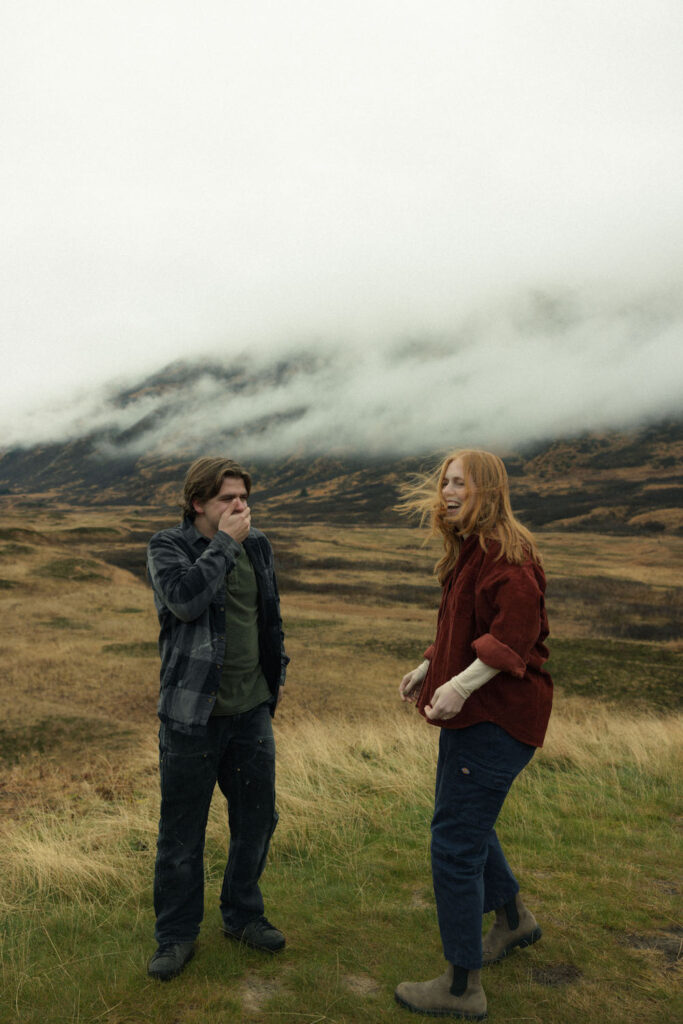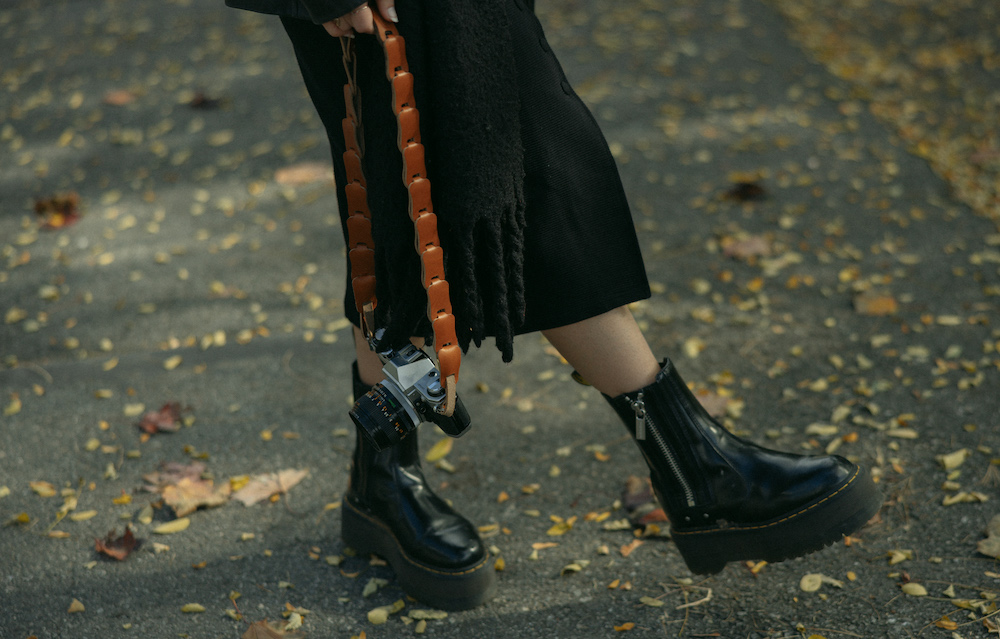I remember when I first started out as a photographer. It can certainly be daunting. From understanding the complexities of your camera to learning the intricacies of photo editing, there’s a lot to learn. Even to this day, I’m still learning. But one of the ways to improve your photography skills is to look for a photography mentor. In this article, I want to help you better understand what to look for in a photography mentor, when you should find one, and how to get the most out of your mentorship.
Qualities to Look for in a Photography Mentor
Let’s start with the basics. While it’s easy to choose a photography mentor based on their photography (more on that later), finding the right mentor can be more nuanced than that. Just because someone creates beautiful works of art doesn’t make them a good teacher. While photography style should initially draw you to the photographer, it shouldn’t be the driver of choosing them as a mentor. Instead, what I suggest is to look for a few key interpersonal skills before you make the jump into full-fledged mentorship.
The Ability to Teach
Teaching is a skill, not a talent. Many individuals can explain a concept, but teachers truly make a concept come to life. In searching for a photography mentor, it’s important to look for someone who can explain what and how to shoot and why. Photography is much more than shutter speeds, framing your shots, and taking hundreds of photos. While all of these are great topics to explore, a mentor should be able to explore and connect these topics in a way that makes photography come to life.
A True Passion
The next essential quality when looking for a photography mentor is passion. It’s important to note that enthusiasm isn’t passion. Don’t get me wrong, enthusiasm is great. Personally, I’m really enthusiastic, but my passion is a little different. What you should be looking for is an infectious outlook on photography. A passionate mentor understands the beauty, the art, and the power that photography can have.
Ease of Accessibility
You know that one friend you always have a good time with but are hard to get ahold of? That’s the exact opposite you want from a photography mentor.
The Different Kinds of Photography Mentorships
Now that we’ve explored the qualities to look for in a mentor, let’s take the time to look at the different kinds of mentorship opportunities. But before we do, I want to note that each kind of mentorship has its pros and cons, and there is no one-size-fits-all when looking for the right opportunity for you.
In-Person Mentorships
Let’s start with the most involved, in-person mentorships. In-person mentorships often happen through on-shoot training (however, they can also cover topics like posing and editing). Typically, for this kind of training, your mentor will set up a photo shoot for the sole purpose of teaching. You want to go into this scenario with many questions as a mentee. I highly suggest trying to get the most out of your in-person opportunity to learn as much as possible.
Pros: In-person mentorships are incredible for creating an open dialogue with your mentor, asking tons of questions, and seeing exactly how your mentor shoots, plans, and organizes their photoshoots. If price and time aren’t factors, in-person mentorships are the way to go.
Cons: While in-person mentorship is incredible, there’s a cost associated with it, and not everyone can afford it (which is totally okay; there are plenty of other mentorship opportunities).
Who it’s For: I highly suggest in-person for those looking to improve their photography skills. However, if you’re just starting out and photography feels more like a hobby than a profession, you may want to find a less extensive mentorship opportunity.
Shadowing
I highly suggest shadowing if you can’t partake in an in-person mentorship program. Shadowing your mentor is the perfect way to see the day-to-day intricacies of a photoshoot, wedding, or documentary-style booking. In my experience, most photographers accept shadowing opportunities. The key to being a good shadow-er (is that a word?) is to be respectful and not expect an open teaching dialogue throughout the shoot.
Pros: Shadowing is a great way to see your mentor in action. You will be able to experience how they organize their shoot and how they direct and guide those being photographed.
Cons: When you are shadowing, you are typically a fly on the wall, trying not to get too involved or invasive. Because you will be on the outside looking in, connecting with your mentor on the nuances and specifics of a photoshoot can be hard.
Who it’s For: I highly suggest mentoring if you’re just starting out. It’s an excellent opportunity to see how a photographer works and what you can expect to do.
Assisting
Assisting in photoshoots is a great way to gain experience and learn through on-site training. As a photography assistant, you will do everything from setting up shots, organizing shortlists, managing equipment, and, in some cases, editing photos.
Pros: Because most photography assistant opportunities are paid, you can expect to learn the ins and outs of photography as a profession. You will learn on-sight photography and photography planning, day-of coordination, and post-production.
Cons: Depending on the photographer and the photo shoot, assisting can sometimes take you away from the camera. Instead, your focus will be assisting in lighting, managing equipment, and other essential duties.
Who it’s For: Assisting is great to gain experience. For those serious about getting into photography as a profession, assisting a photographer is a great way to start out.
Virtual Mentorships
Okay, let’s say you don’t live near your photography mentor; virtual mentorships offer a great opportunity to learn without the need to meet in person. In today’s online world, virtual mentorships are available worldwide. While it can be difficult to get a feel for a photoshoot’s specific shots, frames, and emotions, virtual mentorships offer a great way to connect with your mentor and learn new techniques.
Pros: Virtual mentorships offer a unique opportunity to access mentorship, regardless of location.
Cons: While I love virtual mentorships, they don’t share the same human connection as in-person mentorships.
Who It’s For Virtual mentorships are great for those with little experience but are looking to dive deeper into specific topics of interest. HOWEVER, that isn’t a solidified rule. If you’re just starting out and want a virtual Q and A, great!
Online Courses
Another excellent way to engage with a photography mentor isn’t through a mentorship program or online courses. Online courses offer many topics, tutors, and learning opportunities. Whether starting as a beginner or diving deep into a specific topic, courses offer a unique way to elevate your skill set. I often look up to and admire the photographers in the courses I take, which is exactly why I think they offer a unique opportunity to approach photography mentorship.
Pros: The style of teaching and topics are literally endless.
Cons: Because there are so many courses, choosing the best course for you can be hard. Additionally, courses can sometimes be difficult to learn from if you’re not a classroom-style learner.
Who it’s For: I truly think there is a course for everyone. Even if you struggle with classroom learning, there’s at least one course out there that will ignite your passion.
How Photography Mentorship Helps You Grow
So, what exactly should you expect out of a photography mentorship program?
Depending on the mentorship program, your expectations should vary. However, there are a few principles that I like to stick to when I’m expanding my own learning and growth:
- Expect to Grow: This principle may seem like a no-brainer, but we can sometimes go into new settings and expect that our skills are fixed, meaning we either have a skill for something or we don’t. This expectation is the exact opposite of what you want. Instead, focus on progress, not perfection.
- Engage in the Community: I know it’s hard to reach out to others, especially with the ease of remaining anonymous online, but good things happen when you get outside your comfort zone and build genuine connections with others.
- Lean into Discomfort: Getting uncomfortable is part of the learning process. I know that’s easier said than done, but when you accept that you will get uncomfortable, you allow yourself the space to be present with the learning opportunity.


Concluding Thoughts
Searching for a photography mentor can be as complex or simple as you make it. As you can see, many photography mentorship opportunities exist, from simple courses to robust in-person photoshoots.
What I want to emphasize is that photography mentorship should inspire you. I know the impact that photography has had on my life. Photography isn’t only a creative outlet but a way for me to express how I see the world and how I want others to be seen.
I want this for you, too.
Because of this desire, I started my photography mentorship program. Whether you are looking to pick my brain in a virtual mentorship or you want to dive deep into your craft through an in-person booking, I want to help you succeed.
To get started, be sure to click here or message me with any questions you have.

View comments
+ Leave a comment